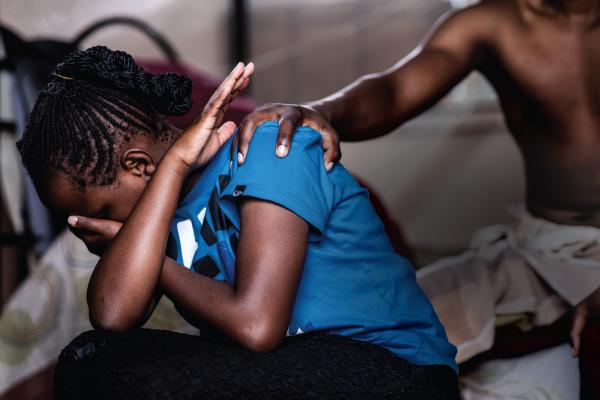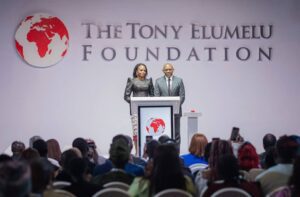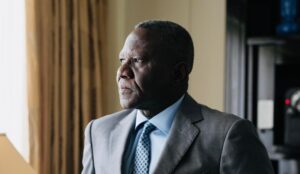
Source: Ghanaija
In the small village of Lira in Uganda, a woman named Amina sat under the shade of a baobab tree, contemplating her life. Amina had married young, as was customary in her culture, to a man named Kato. Initially, Kato was charming and attentive, promising Amina a life filled with love and prosperity. However, over the years, Kato’s behavior changed drastically. He became controlling and violent, often taking out his frustrations on Amina. Despite the abuse, Amina remained in the relationship, a decision that puzzled many in her community.
Amina’s story is not unique to Lira. Across Africa, from the bustling streets of Lagos in Nigeria to the quiet plains of Namibia, countless women find themselves trapped in abusive relationships. Understanding why women like Amina stay is complex and rooted in a mix of cultural, economic, social, and psychological factors.
One of the primary reasons is economic dependency. In many parts of Africa, women have limited access to education and employment opportunities. Amina, for instance, had only attended primary school and had no formal job. Her economic survival depended entirely on Kato. Leaving him would mean not only abandoning her home but also facing an uncertain future with no means to support herself or her children.
In Lagos, a woman named Chioma faced a similar predicament. Chioma had been married to Emeka for ten years, during which time she endured physical and emotional abuse. Despite having a degree in accounting, Chioma struggled to find work due to the high unemployment rate and the societal expectation that women should prioritize family over career. Emeka controlled all the family finances, leaving Chioma with no savings or resources to escape.
Cultural and societal norms also play a significant role in why women remain in abusive relationships. In many African societies, marriage is considered sacred and divorce is stigmatized. In rural areas like Koutiala in Mali, women are often pressured to stay in their marriages for the sake of family honor and social acceptance. Fanta, a young woman from Koutiala, was constantly reminded by her parents and elders that leaving her abusive husband would bring shame upon her family. The fear of being ostracized and losing her social support network kept Fanta in her marriage despite the abuse.
Furthermore, the extended family system, while providing a strong support network, can also perpetuate the cycle of abuse. In Addis Ababa, Ethiopia, Hana found herself isolated in her abusive marriage. Her husband’s family, who lived nearby, exerted significant influence over her life. They discouraged her from leaving, arguing that marital issues should be resolved within the family. Hana’s attempts to seek help were met with admonitions to be patient and endure, reinforcing the belief that her suffering was a private matter that should not be exposed.
Another critical factor is the psychological impact of abuse. Abusers often employ tactics to manipulate and control their victims, leading to a phenomenon known as “learned helplessness.” This was the case for Thandiwe from Bulawayo, Zimbabwe. Her husband, Tendai, systematically eroded her self-esteem over the years, making her believe that she was worthless and incapable of living independently. Tendai’s constant criticism and psychological manipulation left Thandiwe feeling trapped and powerless, convinced that she had no choice but to stay.
In addition, fear for their children’s well-being often compels women to remain in abusive relationships. Amina, for example, worried about how leaving Kato would affect her three children. She feared that Kato would retaliate and harm them or that they would suffer if she could not provide for them on her own. Similarly, in the town of Eldoret in Kenya, a woman named Wanjiku stayed with her abusive husband, Mwangi, because she wanted to keep her children in school and ensure they had a stable home. The prospect of uprooting their lives and facing potential hardship as a single mother was daunting.
There are also legal and systemic barriers that prevent women from leaving abusive relationships. In many African countries, legal protections for victims of domestic violence are inadequate or poorly enforced. For instance, in some areas of Cameroon, women like Amina find it difficult to obtain restraining orders or access shelters due to bureaucratic obstacles and lack of resources. The police and judicial systems may also be biased, often viewing domestic violence as a private matter rather than a criminal offense.
Despite these challenges, there are glimmers of hope and change. Grassroots organizations and NGOs across Africa are working tirelessly to support women in abusive relationships. In Johannesburg, South Africa, a shelter named “Siyabonga Women’s Refuge” offers a safe haven for women like Nthabiseng, who escaped her abusive husband with the help of the organization. The refuge provides not only shelter but also counseling, legal aid, and skills training, empowering women to rebuild their lives.
Similarly, in Accra, Ghana, an NGO called “Women in Need” runs awareness campaigns and provides support services to victims of domestic violence. Ama, a survivor of abuse, found solace and assistance through this organization. With their help, she was able to secure a job, find a safe place to live, and gain the confidence to start anew.
Educational initiatives and advocacy efforts are also crucial in changing societal attitudes towards domestic violence. In Kigali, Rwanda, a program called “Empower Women, Empower Nations” conducts workshops and seminars to educate communities about gender equality and the harmful effects of domestic violence. Through these efforts, women like Amina are learning that they have rights and deserve to live free from abuse.
The journey to ending the cycle of abuse and empowering women in Africa is long and arduous, but progress is being made. By addressing the economic, cultural, social, and psychological factors that trap women in abusive relationships, and by providing support and education, there is hope for a future where women like Amina, Chioma, Fanta, Hana, Thandiwe, Wanjiku, Nthabiseng, and Ama can live with dignity and freedom.
As Amina sat under the baobab tree, she reflected on the stories of other women she had met through a local support group. She realized that she was not alone and that together, they could find strength and courage to overcome their circumstances. With newfound determination, Amina decided to take the first steps towards reclaiming her life, knowing that change was possible, not only for herself but for women across Africa.






